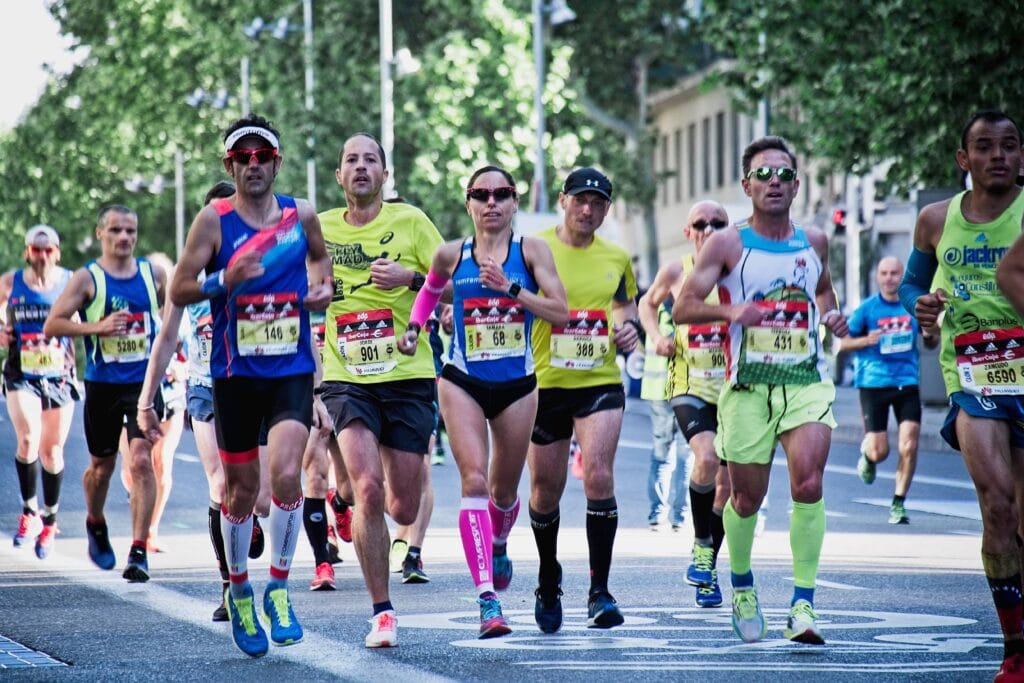Last November, the Abbott World Marathon Majors announced a new event, the Abbott World Marathon Majors Wanda Age Group World Championships. The initial event will be held within the 2020 Virgin Money London Marathon.
To qualify for the race, runners 40 and over have to accumulate Abbott World Marathon Majors Wanda Age Group World Rankings points in a series of 50 marathons, starting with the 2018 Berlin Marathon on Sept. 16 and ending on Sept. 29, 2019. The best two results will count for each runner’s ranking.
The top-ranked runners in every age group will qualify to run in the (I refuse to type it all out again) AWMMWAGWC. In addition, the top age group runners from any country that has been represented in the qualifying period will also be eligible to register to participate. It hasn’t been determined how many of those “top-ranked runners” will be invited at this point.
I thought I’d take a quick look at the time standards and associated point system.
According to the group’s website, points are scored according to how your time compares with either the winner’s time in your age group or a ‘platinum standard’ determined by the AWMMWAGWC, whichever is faster. The platinum standard times are “calculated for each age group and gender, using standard multiples of the ‘mean’ of the current marathon world record times for each age group and gender” according to the AWMMWAGWC.
In the six Marathon Majors, the age group winners get 4000 points. Any runner who is within 29 seconds of the age group winner’s time receives 10 points less (3990 points). Runners within 30-59 seconds of the winning time receive 20 points less; those finishing within 1 minute and 29 seconds get 30 points less, and so on. In the other 44 races, the platinum standard is the 4000 point level, unless the age group winner exceeds the standard, in which case they get 4000 points and everyone else is scored relative to them.
Essentially, you lose 10 points for every additional 30 seconds. As an example, let’s look at my last decent marathon, a 3:30:13 at the Rehoboth Beach Marathon. The Platinum standard for my age group (M 55-59) is 2:50. I was 40 minutes and 13 seconds slower than that, so I would have scored 4000-810, or 3190 points.
Another way to look at it: I’d get 2000 points for running a 4:30. If the winner in a Marathon Major in my age group only runs one race a year (not unusual), all I have to do to outscore him is run two races with a total time under 9 hours. That I can still do. So it’s clear that if you plan on being invited to the AWMMWAGWC, you’d better plan on running at least two of the 50 races in the series.
Here are the platinum standards for each age group:
Here’s how those times compare to the 2015 WMA/USATF age-grading tables for marathon runners, essentially a table of world-record times for each age:
And here’s how each platinum time ranks as a percentage of the age grading standard:
Ranked this way, the men’s and women’s platinum standards track each other closely. (Fun fact: for 80+ women, the qualifying standards for the Boston Marathon are faster than the platinum standards.) For the most part, the platinum standards run slightly above the 80% age-graded level that is loosely known as “National Class”, which is pretty fast. That 3:30 I mentioned earlier only grades out at 69.45%
I took a look at the 2018 results for the Grandma’s Marathon, one of the 50 in the series, to see how the age group winners did. In about half the age groups for both men and women the winners exceeded the platinum standards, though they didn’t do as well in the oldest age groups. So the platinum standards seem like a fair approximation of what the age group winners might run.
The series appears to be designed to do two things: increase recognition for elite age-group runners and increase interest in the 50 races in the series. They’re all large corporate races; let’s hope some of the money they bring in goes to the runners, too.

